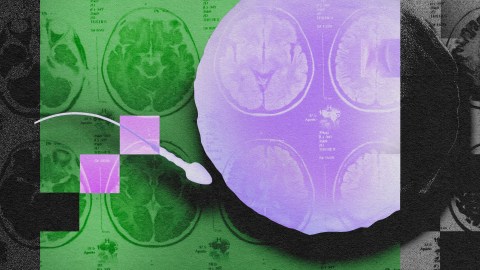Fertility problems linked to increased risk of autism

- Autism is a neurodevelopmental disorder characterized by social impairments.
- The causes of autism are unclear, but genetics and environment both play a role.
- New research shows that fertility problems slightly increase autism risk.
Autism spectrum disorder (ASD) is a neurodevelopmental disorder characterized primarily by problems with communication and social interactions. According to recent figures from the Centers for Disease Control and Prevention, the disorder affects an estimated one in 36 children. The incidence of autism was believed to have increased dramatically since the 1990s, but this apparent increase is more likely due to greater awareness of the condition and changes in how it is diagnosed. Despite any increased awareness, the exact causes of autism remain unclear.
However, growing evidence suggests that specific environmental and genetic factors play a role. A large population-based study recently published in the open-access journal JAMA Network Open shows that children born to parents with fertility problems have a slightly higher risk of autism.
Fertility complications and autism
Maria Velez of Queen’s University in Ontario, Canada, and her colleagues examined the health data of more than 1.3 million live births between April 2006 and March 2018, the vast majority of which (almost 1.2 million, or 86.5%) were conceived naturally.
About 142,000 (or about 10%) of the children were born to parents with subfertility, defined as a failure to conceive after one year of regular, unprotected intercourse; and the remaining were conceived by a method of assisted reproductive technology (in vitro fertilization, sperm injection, ovulation induction, or artificial insemination).
The researchers followed up the children starting from 18 months of age up to 8 years. A total of 22,409 of them received a diagnosis of autism, at an average of just under 4 years of age. These included 1.6% of the children conceived naturally and 2% of those born to parents with subfertility.
The results also showed that in children born to subfertile parents, the risk of autism was associated with obstetrical factors such as having twins or triplets or preterm birth.
“Our study showed that IVF or ICSI did not increase the risk of ASD when compared with individuals with subfertility,” says Velez. “This suggests that underlying infertility might be the driver between parental infertility and the small risk of ASD in the child found in our study, independent of whether they received fertility treatment.”
“Further studies are needed to understand some of the mechanisms by which a parental diagnosis of infertility, independent of fertility treatment, is associated with a slightly higher risk of ASD in the child,” she adds. “For example, we need more details about paternal factors, and whether the egg or sperm are from the parent or a donor, among other things.”





